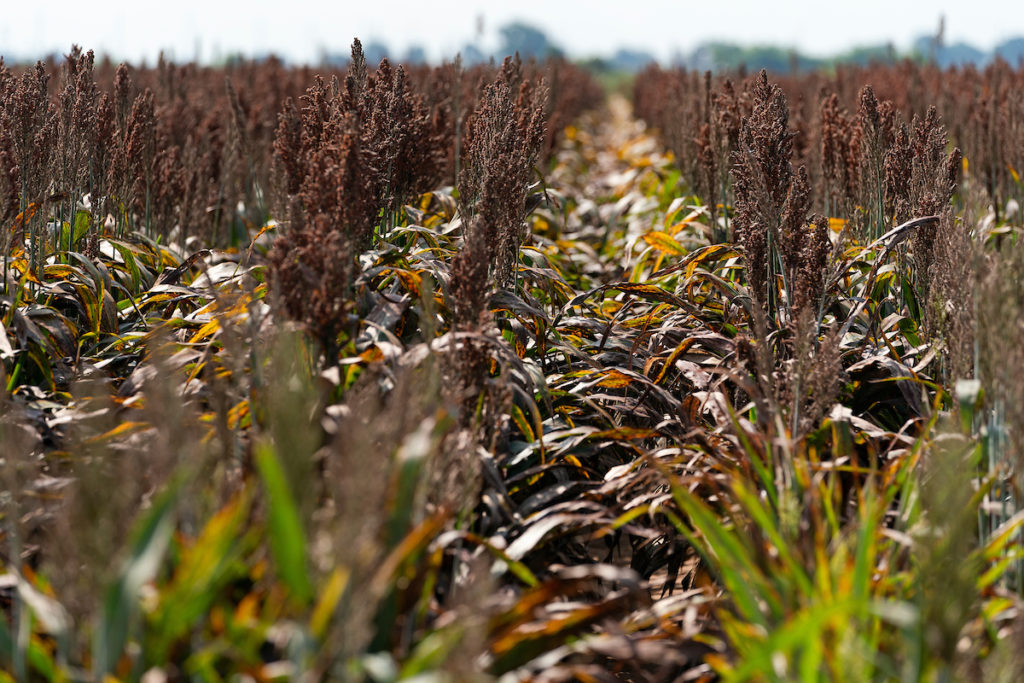I apologize for missing our last weekly round up post. We’re back today with lots of agricultural law news from around the country.

Texas A&M AgriLife Marketing & Communications photo by Laura McKenzie
*Settlement deadline looming in Texas v. New Mexico water lawsuit. Michael Melloy has given Texas and New Mexico until September 23 to reach a settlement in the ongoing Texas v. New Mexico water lawsuit currently pending at the US Supreme Court. If the parties fail to meet that deadline, the case is set to go to trial, set in Cedar Rapids, IA, in January. [Read article here.]
*EPA asks court to continue stay in dicamba case; public comment open for risk assessment. The EPA has requested that the US District Court for the District of Arizona leave in place a stay in a lawsuit filed by the Center for Biological Diversity challenging the registration of over-the-top dicamba herbicides Engenia, Tavium, and Xtendimax. The stay was originally entered in July 2021 in order to allow questions of jurisdiction in the US Court of Appeals for the District of Columbia, where several other similar cases are pending. [Read article here.] Meanwhile, the EPA published its updated Ecological Risk Assessment for Dicamba and is taking public comment through October 17, 2022. The assessment noted a substantial increase in the number of off-target incidence since the registration of the dicamba-tolerant crops and noted that the additional label restrictions added in 2020 had no effect on reducing these impacts. [View website here.]
*The Inflation Reduction Act of 2022: What’s in it for Agricultural Producers? The Agricultural and Food Policy Center at Texas A&M University published a white paper looking at the recently passed Inflation Reduction Act and how its provisions may impact agriculture. Included within this report is an update on the current status of Section 1005 of the American Rescue Plan Act, which provided historic relief for socially disadvantaged farmers. Section 1005 was repealed and replaced by the Inflation Reduction Act of 2022 (IRA), which was passed last month. Importantly, the IRA provisions will apply to “at risk” farmers and ranchers and “underserved” farmers of all backgrounds who have experienced discrimination under prior USDA farm lending programs. Many of the details surrounding this program and who will qualify will be left up to the USDA rulemaking process. [Read paper here.]
*Video highlighting the importance of beneficiary designation updates. Ashley Hawley, an attorney at Ruder Ware, recorded a short but important video discussing the importance of keeping beneficiary designations up to date. [Watch video here.]
*Hunting tradition versus private property rights at issue in Virginia. Farm Journal posted an interesting article about a lawsuit recently filed in Virginia. Landowners, including farmers, filed suit challenging a state statute that allows certain hunters to enter private property without permission from the landowner. [Read article here.] This made me curious about the laws in Texas, but the Texas Parks and Wildlife made clear that “no person may enter any property to pursue wounded game, retrieve a dog, or for any other purpose, without the consent of the landowner.” [Read rules here.]
*Considering compensation on the farm. DTN Progressive Farmer published an interesting article looking at the benefits beyond salary that the next generation of farmers should consider. [Read article here.]
Upcoming Presentations
On Wednesday, I’ll be speaking alongside Rusty Rumley at a free fence law webinar hosted by the National Agricultural Law Center. [Register here.] I’ll also be teaching several landowner liability courses for real estate agents in the next two weeks.
To see a full list of my upcoming presentations, click here.
Don’t forget–we have our Owning Your Piece of Texas: Key Laws Texas Landowners Need to Know course and our Ranchers Leasing Workshop both available as online courses. These classes can be taken at your own pace, anytime you want. Once you register, you have access to the materials for two years and can re-watch anytime you want.












